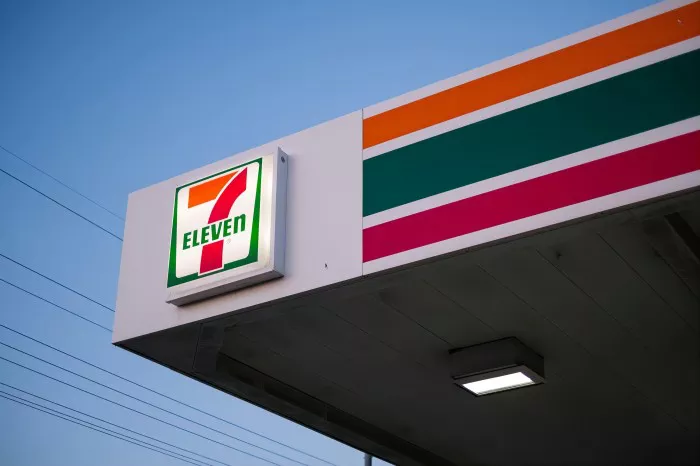Introduction
In the world of franchising, 7-Eleven stands out as a quintessential brand with a global presence. Offering convenience, quality products, and a recognizable brand, 7-Eleven has become synonymous with quick stops for snacks, drinks, and everyday essentials. For entrepreneurs seeking a franchise opportunity, understanding the costs, profit potential, brand advantages, food offerings, and overall opportunity of a 7-Eleven franchise in 2024 is crucial.
The Legacy of 7-Eleven
Established in 1927 in Dallas, Texas, 7-Eleven has evolved from a modest icehouse to the world’s largest convenience store chain. With over 75,000 stores spanning 19 countries and regions, 7-Eleven has built a reputation for innovation, convenience, and customer service excellence.
Franchise Requirements
To become a franchisee with 7-Eleven, candidates must meet specific requirements set forth by the company. Here are the typical requirements for obtaining a 7-Eleven franchise:
Financial Requirements:
Liquid Assets: Prospective franchisees must have a minimum amount of liquid assets available for investment. The exact amount varies depending on factors such as the location and size of the store.
Net Worth: Candidates should have a minimum net worth to demonstrate their financial stability and ability to manage a franchise business effectively.
Experience and Background:
Business Experience: While prior experience in retail or franchising is beneficial, it is not always required. However, candidates with relevant business experience may have an advantage during the selection process.
Management Skills: Franchisees should possess strong management skills to oversee day-to-day operations, including staffing, inventory management, and customer service.
Background Check: 7-Eleven conducts background checks on potential franchisees to ensure they meet the company’s standards and requirements.
Location and Site Selection:
Location Criteria: 7-Eleven has specific criteria for selecting franchise locations, including demographic factors, traffic patterns, and proximity to other businesses.
Site Approval: Prospective franchisees must identify a suitable site for their 7-Eleven store and obtain approval from the company before proceeding with the franchise agreement.
Franchise Agreement:
Agreement Terms: Franchisees must review and sign a franchise agreement that outlines the terms and conditions of the franchise relationship, including fees, royalties, and operational requirements.
Legal Compliance: Candidates should ensure they understand and comply with all legal and regulatory requirements associated with owning and operating a 7-Eleven franchise in their area.
Training and Support:
Training Program: 7-Eleven provides comprehensive training programs for new franchisees, covering topics such as store operations, product knowledge, and customer service.
Ongoing Support: Franchisees receive ongoing support from 7-Eleven in areas such as marketing, technology, and business development to help them succeed and grow their franchise business.
Commitment and Dedication:
Time and Effort: Owning and operating a 7-Eleven franchise requires a significant time commitment and dedication to ensuring the success of the business.
Brand Representation: Franchisees must adhere to 7-Eleven’s brand standards and guidelines to maintain consistency and uphold the company’s reputation.
Cultural Fit:
Company Values: 7-Eleven looks for franchisees who align with the company’s values and culture, including a commitment to customer service, innovation, and community engagement.
Brand Ambassadorship: Franchisees serve as ambassadors for the 7-Eleven brand and should embody its core principles in their interactions with customers and employees.
By meeting these requirements and demonstrating a commitment to excellence, prospective franchisees can increase their chances of obtaining a 7-Eleven franchise and building a successful business within the company’s renowned network of convenience stores.
Franchise Costs of 7-Eleven
Investing in a 7-Eleven franchise requires a significant initial investment. The franchise fee alone can range from $10,000 to $1,000,000, depending on factors such as location, store size, and existing infrastructure. Additionally, franchisees must cover expenses for equipment, inventory, leasehold improvements, and operational costs.
Profit Potential of 7-Eleven Franchise
While the upfront costs of a 7-Eleven franchise can be substantial, the profit potential is enticing. With a proven business model and strong brand recognition, franchisees have the opportunity to generate significant returns on their investment. Profit margins can vary based on factors such as location, sales volume, and operational efficiency.
Brand Advantages of 7-Eleven
One of the primary advantages of owning a 7-Eleven franchise is the brand’s widespread recognition and consumer trust. The iconic logo, coupled with a diverse range of products and services, attracts customers from all walks of life. Additionally, 7-Eleven provides ongoing support, training programs, and marketing initiatives to help franchisees succeed.
Food Offerings at 7-Eleven
In recent years, 7-Eleven has expanded its food offerings to meet the evolving tastes and preferences of consumers. From fresh sandwiches and salads to hot food items and snacks, 7-Eleven provides a variety of options for breakfast, lunch, and dinner. Moreover, 7-Eleven’s proprietary brands, such as Big Bite hot dogs and Slurpee beverages, have become fan favorites.
Opportunity for Growth and Expansion
As consumer demand for convenience continues to rise, the 7-Eleven franchise presents an attractive opportunity for growth and expansion. With flexible store formats, innovative technology solutions, and a commitment to sustainability, 7-Eleven is well-positioned to capitalize on emerging trends in the retail industry. Franchisees can leverage the strength of the 7-Eleven brand to drive sales, increase profitability, and secure their financial future.
Conclusion
In conclusion, the 7-Eleven franchise offers entrepreneurs a compelling opportunity to become part of a globally recognized brand with a proven track record of success. While the initial investment may be significant, the potential for long-term profitability and growth is substantial. By capitalizing on 7-Eleven’s brand advantages, diverse food offerings, and commitment to innovation, franchisees can build thriving businesses that serve their communities and drive economic prosperity. As we look ahead to 2024 and beyond, the 7-Eleven franchise remains a beacon of opportunity in the dynamic world of franchising.

